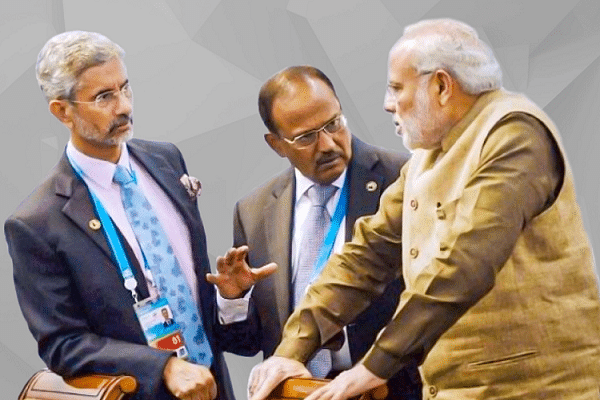
As India Now Targets Turkey’s Tourism Industry, Here’s How It’s Taking On Islamist Nations Over Kashmir
The recently concluded United National General Assembly (UNGA) session saw two nations - Turkey and Malaysia angrily taking on India for abrogating Article 370 in Kashmir.
The respective speeches by Turkish President Recep Tayyip Erdogan and Malaysian Prime Minister Mahathir Bin Mohamad which bordered angry rants, condemned India for its decision and called it an invading force in Kashmir.
The common denominator in these statements was a glaring tilt towards the narrative which Pakistan regularly peddles over Kashmir.
The respective world leaders also tried to paint the picture of a “Kashmir besieged by Indian actions”. This garnered them huge sympathy among Islamist ranks but has subsequently drawn India’s wrath.
India’s Diplomatic Escalation Against Turkey
The latest development in India’s diplomatic escalation against Turkey has been an advisory issued by the government, asking Indians to exercise utmost caution to Indian tourists visiting Turkey.
This advisory has been interpreted by many as India’s indirect way of discouraging its citizens from visiting Turkey, which is likely to have ramifications on its tourism industry.
It should be noted that this year Turkey recorded a 56 per cent growth in Indian tourist traffic this year. Turkey’s tourism industry expected to receive around 2.5 lakh tourists from India by the end of 2019. It remains to be seen what impact the advisory would have on this figure.
Just three days after Erdogan’s speech Prime Minister Narendra Modi appeared to be sending a clear message of “if you can, we can as well”, when he met the leaders of Cyprus and Armenia.
Both Armenia and Cyprus have had very strained relations with Turkey. Armenia blames the erstwhile Ottoman Empire of spearheading a genocide of 15 lakh Armenians and Cyprus has been locked in a border and territorial dispute with Turkey since the past few decades.
After Erdogen decided to invade Northern Syria in a unilateral offensive aimed against the Kurds, India issued a stern statement denouncing the offensive and urged Turkey to respect Syria’s sovereignty.
India is now also cutting down its defence exports to Turkey which includes equipment like explosives and detonators. The report claimed that export authorisation for sensitive military equipment is being withheld over Erdogan’s Kashmir statements and concerns of heightening Turkey-Pakistan Bonhomie.
It has also been claimed that Turkey’s M/s Anadolu Shipyard may lose out on a $2.3 billion project to supply fleet support ships (FSS) to the Indian Navy.
Malaysia In A Soup
India is the third largest palm oil importer for and it accounted for accounted for palm oil sales worth $1.63 billion in 2018.
Following the vicious statements by Mahathir Mohammed over Kashmir, the Indian food ministry proposed to raise the integrated goods and services taxes (IGST) to 12 per cent on imports of refined palm oil.
The External Affairs Ministry in response to Mohammed’s speech had urged Malaysia to mind its friendly relations and desist from making such statements.
This hit the Malaysian palm oil market badly as crude palm prices dropped to the lowest since 3 October to $518 a tonne.
Subsequently, various palm oil importers in India speculated that the Narendra Modi led government may further clampdown on Malaysia and decided to stop signing any new purchase contract with Malaysian sellers from 1 November.
Mahathir Mohammed though appears to be putting up a brave face as he has declined to recant his Kashmir statement, for now.
Both Turkey And Malaysia On The Radar
Besides the aforementioned actions against the respective counties, reports claim that India is also mulling measures to curb imports from both these countries.
Both tariff and non-tariff measures including higher taxes and stringent quality checks are being considered. While India has a trade surplus with Turkey, it ran a trade deficit of $4.2 billion with Malaysia in FY19.
This proposal is already said to have been discussed by the Narendra Modi led central government but awaits a final approval.